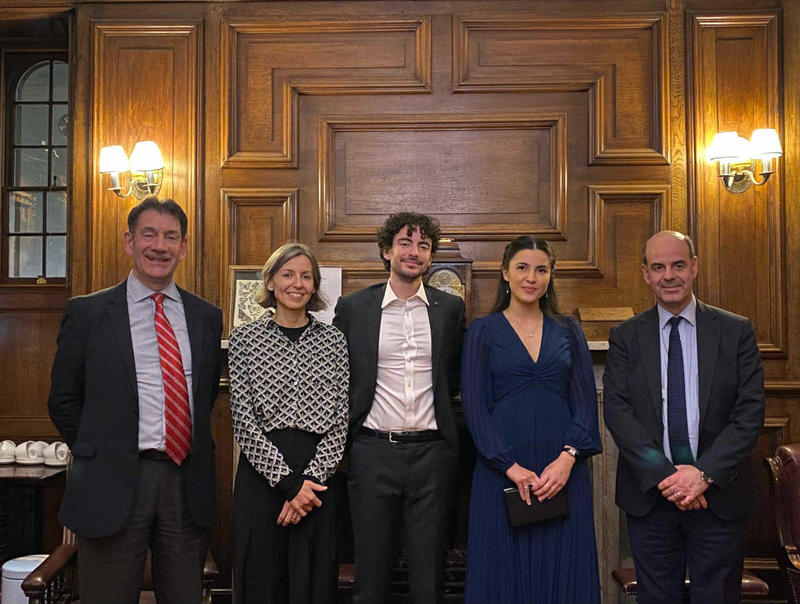Congratulations to University of Oxford student Carlo Mussolini who on 22nd November 2023 successfully defended his thesis, the contents of which are described below in his own words:
My research focused on designing and optimising a new tertiary beamline branch for installation on the H2 beamline within CERN’s North Area Experimental Hall. This addition aims to bolster the capabilities of the NA61/SHINE experiment by enabling the transport and delivery of low-momentum hadrons, which currently cannot be delivered stably to the experiment. The scope of my work encompassed the entirety of beamline design, spanning from tertiary target simulations to the optimisation of the beamline’s optics via the use of novel methodologies, and studies on the beamline implementation in the North Area.
The beamline was tailored to meet the requirements of NA61/SHINE’s Neutrino programme by delivering hadrons in the 1 to 13 GeV/c momentum range—a crucial momentum range which currently lacks sufficient experimental data. Extensive studies were conducted to ensure the proposed beamline's capacity to fulfil NA61/SHINE's particle delivery needs. Specifically, simulations were performed to ensure sufficiently high particle rates, low leptonic backgrounds, and a good momentum resolution. Attention was also given to the selection of instrumentation used in the beamline, to enable particle-by-particle identification across the operational momentum range.
Finally, extensive studies were conducted to ensure the feasibility of the implementation of the beamline in CERN’s North Area, examining any possible radiation safety issues that may arise from the beamline, and addressing the challenges involved in installing the beamline while maintaining the current capabilities of the H2 beamline.

From left to right: Prof. Phil Burrows, Dr. Verena Kain (CERN), Carlo Mussolini, Collette Pakuza and Prof. Emmanuel Tsesmelis, pictured here at Jesus College in Oxford